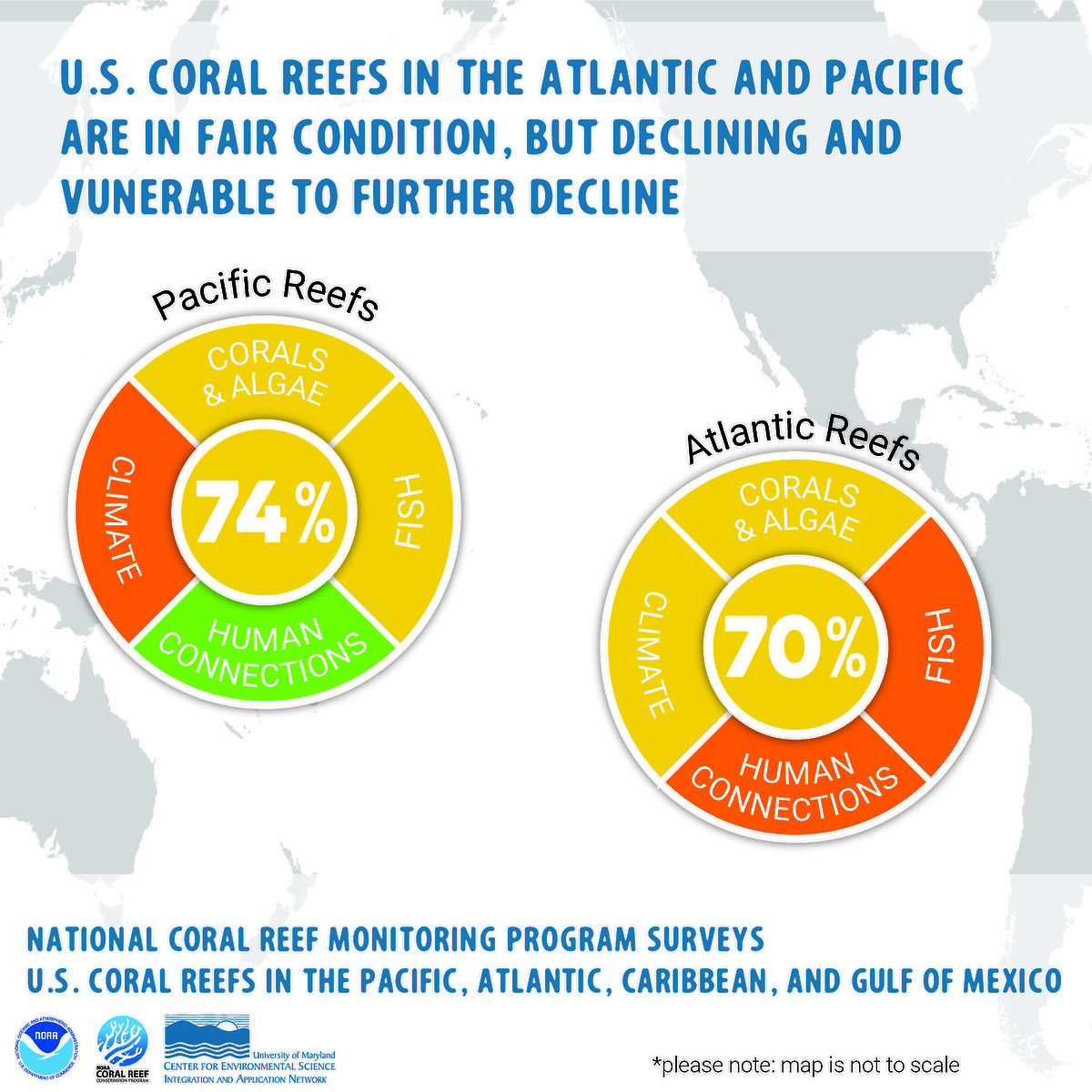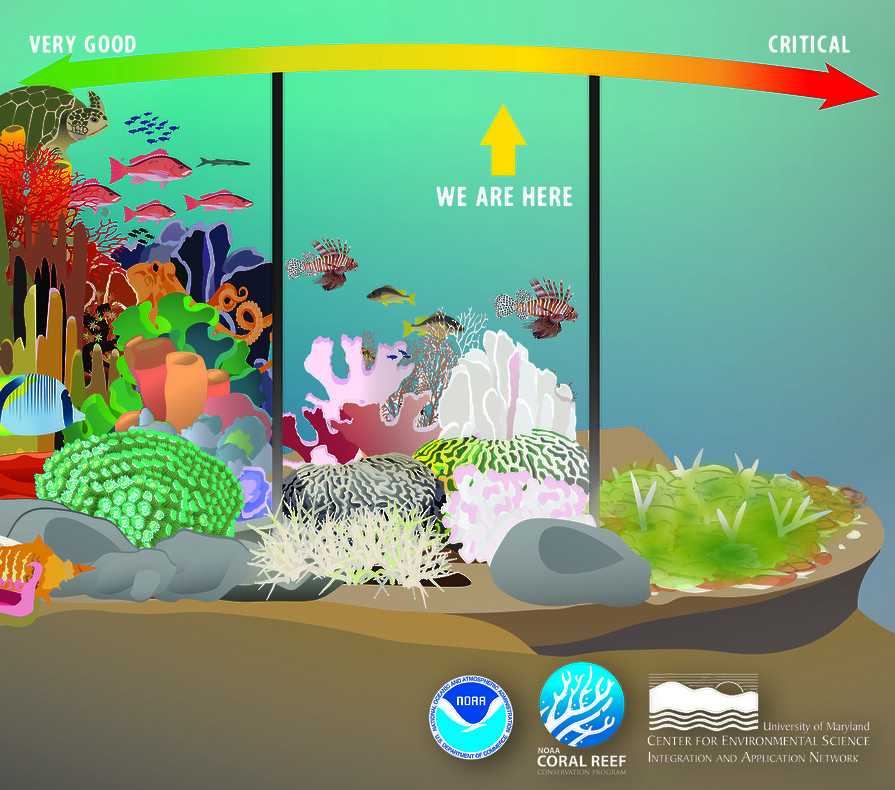U.S. corals stressed about current events
Nathan Miller ·On Tuesday, November 10th, the Integration and Application Network (IAN) held a joint press event with NOAA's Coral Reef Conservation Program (CRCP) to celebrate the launch of the national coral reef status report. Years in the making, Coral reef condition: A status report for U.S. Coral Reefs synthesizes massive amounts of data to summarize the health of coral reefs in U.S. jurisdictions. The report includes marine, climate, and socioeconomic data. Designed to be accessible for the general public and policy makers, the report uses a health scale and visual elements to describe coral reefs in the Atlantic and Pacific Oceans.

Overall, the report paints a distressing picture of United States reefs, explicitly stating that, "Coral reefs are in fair condition, but are vulnerable and declining." The report describes why coral reefs are in declining health and vulnerable to further degradation. Climate change is a huge threat to coral reefs; warming oceans lead to coral bleaching and ocean acidification. Coral disease is another threat, and human impacts such as pollution and overfishing further decimate vulnerable reefs.

The release of this national status report is the culmination of over five years of collaboration between IAN and CRCP, who have coordinated with scientists and stakeholders across the country. Nine jurisdiction-specific coral status reports were published prior to this national report. For more information on these status reports, visit the Coral Reef Information System or IAN's own coral reef project page.

About the author
Nathan Miller

Nathan Miller received his BFA in film and television from New York University and his Masters at Duke University, where he studied coastal environmental management as well as environmental education. For his master's project at Duke, he developed an environmental interpretation manual for seal naturalists in New England. Since coming to the Integration and Application Network (IAN), Nathan has developed environmental health report cards and led or co-facilitated multiple courses on data interpretation and science communication. Scientists, managers, and students of all experiences enroll in these courses in order to gain a foundation in multimedia and storytelling strategies, which in turn helps make complex data more accessible to the general public. Nathan has also co-developed courses in collaboration with the Arnold School of Public Health at the University of South Carolina that teach graduate students how to develop stakeholder driven research projects.

